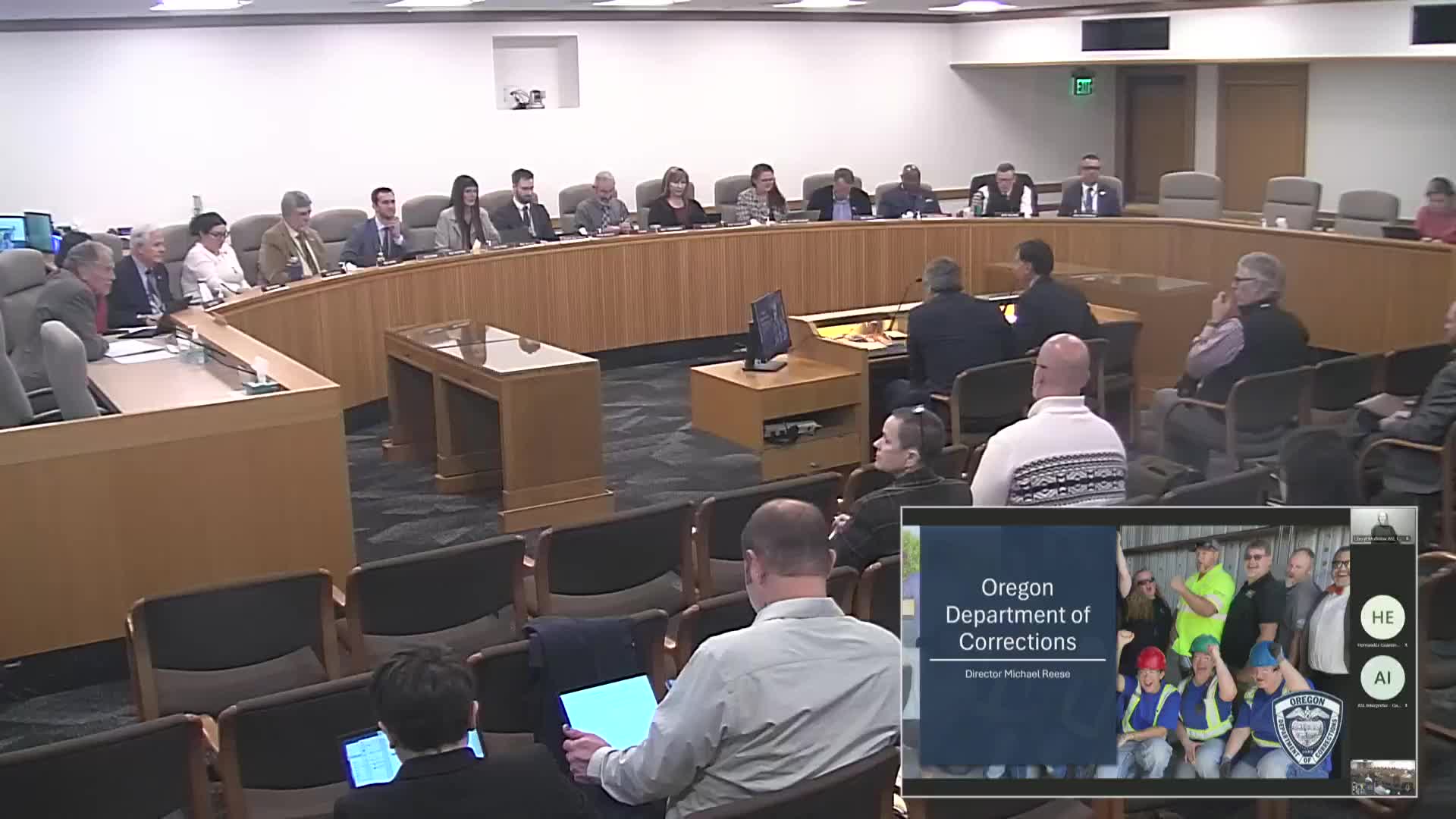Oregon DOC tells judiciary committee prisons hold more than 12,000; staffing, aging population and modernization top concerns
Get AI-powered insights, summaries, and transcripts
Subscribe
Summary
Director Mike Reese told a Jan. 22 informational hearing that Oregon Department of Corrections operates 12 prisons housing over 12,000 adults in custody, faces staffing shortages and an aging incarcerated population, and needs IT and facility modernization.
Mike Reese, director of the Oregon Department of Corrections, told a joint judiciary informational hearing on Jan. 22, 2025, that the department runs 12 prisons holding more than 12,000 adults in custody and manages community supervision in partnership with counties statewide.
Reese said the agency’s mission balances public safety and rehabilitation: "protecting the community and transforming lives," and he told legislators the agency’s work requires investment in health care, staff and facilities.
The agency reported a roughly $2.4 billion biennial budget and a statewide footprint that includes institutions from Lakeview to Tillamook and Coffee Creek — the state’s women’s facility in Wilsonville. Reese said the population is primarily male, with over 11,000 men in custody, and that about 90% of adults in custody will eventually be released to communities.
Reese described three central challenges: staffing shortages, an aging in‑custody population, and antiquated technology and facilities. He said staffing shortages are most acute in security and health care and that the department must frequently require mandatory overtime because it operates 24/7. On aging, Reese said the DOC has "over a 1,000 adults in custody who are 60 years of age or older," many of whom present care needs comparable to people 10–15 years older and occupy infirmary and hospice beds.
Reese highlighted programmatic responses and recent improvements. He said DOC has expanded medication assisted treatment, noting an increase from a few hundred adults receiving medication to "over a 1,000 today"; the agency is piloting canine teams and considering body scanners to reduce contraband; and it is testing wastewater at facilities to detect substances. Reese also said DOC is hiring people with lived experience as peer mentors and described partnerships with higher education and Oregon Corrections Enterprises.
On facilities and modernization, Reese told legislators the Oregon State Penitentiary is nearly 100 years old, lacks elevators in housing tiers and can reach extreme temperatures on upper tiers; he said DOC will present a replacement strategy during budget talks. He also called the agency’s offender-management IT a legacy system developed in the 1990s that needs replacement.
Committee members asked about contraband interdiction, family phone costs and work and education opportunities. Reese said Oregon’s per‑minute charge for phone calls is currently 9¢ and that federal caps will reduce that to 6¢; implementation depends on contract terms. He said DOC provides a range of work and education programs, including firefighting crews and a recent four‑year degree graduation at Coffee Creek.
Reese closed by thanking the committee and offering follow‑up and site visits: "When you come to our facilities, you're gonna see the good work," he said.
Questions from representatives and senators generated follow‑up items that DOC staff agreed to address outside the hearing, including detailed staffing numbers, pay for incarcerated workers on specific programs and location‑specific housing and release questions.
